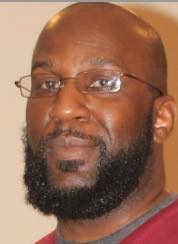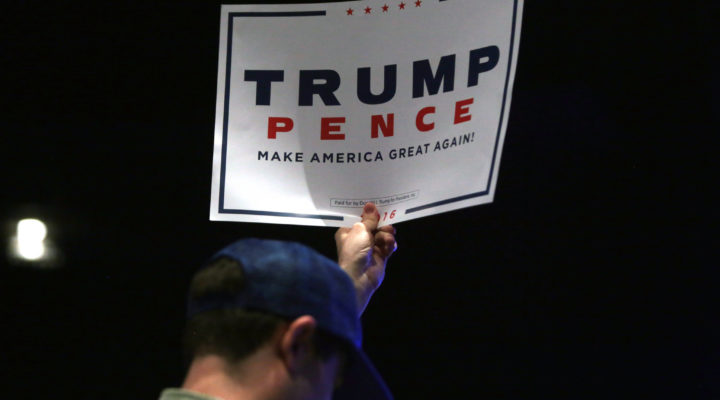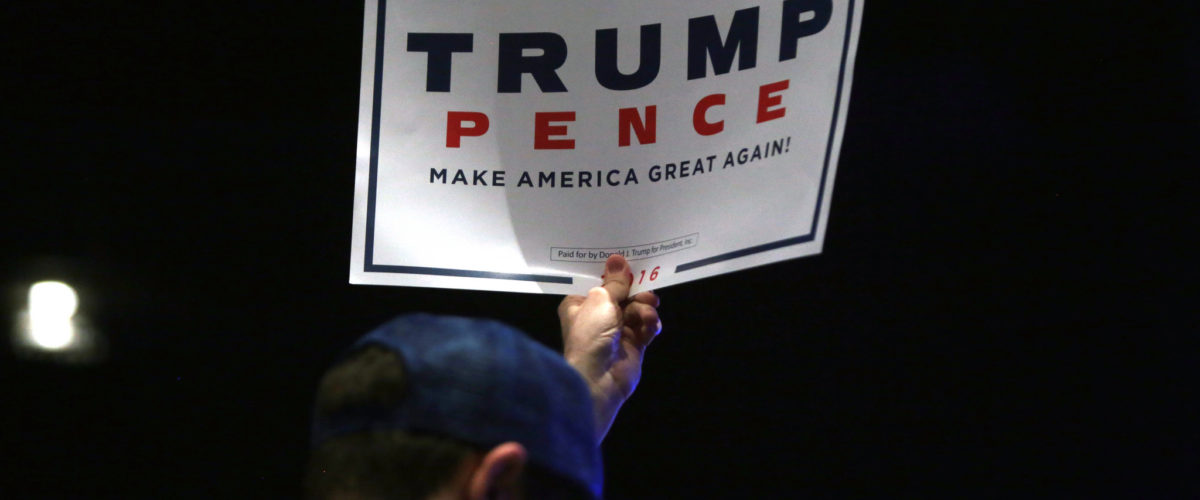Sam Washington is a seminarian and Air Force veteran who was studying to become an evangelical pastor when Donald Trump was elected to the presidency.
“I wonder if I should even go to church anymore,” Washington, who is black, wrote in “A Welcoming Church No More,” an article published by the Los Angeles Review of Books.
Washington, 41, told Baptist News Global he’s also uncomfortable with evangelicalism given how enthusiastically white Christian place support for Trump over gospel values and dismiss Black Lives Matter participants as terrorists.

Sam Washington
“My faith has not been shaken or shattered by this,” Washington said. “My faith in the church was shaken and shattered. And I am not the only one.”
Yet, he labors on with his calling. After several years preaching and teaching in Southern Baptist congregations, Washington now teaches apologetics and a 40-plus class at a non-denominational church in San Antonio, where he lives.
In an interview with BNG, Washington shared about his faith journey, which began in Pentecostalism and Islam before going to seminary and service in Baptist congregations. Portions of that conversation appear here, edited for clarity.
You grew up attending Pentecostal churches?
Yes, I grew up in Texas in the Church of God in Christ. I was in church every Sunday. There were no Sundays off. Church was always a part of my life. But I always had this hunger for knowledge and understanding and it seemed like no one seemed to have answers to the questions I was asking.
Your article mentions you being fully invested in the Nation of Islam at one point. How did that come about?
It was the summer of my 14th year. I was at the library for something to do. On this particular day I remember that I saw The Autobiography of Malcom X. The cover appealed to me. I grabbed the book on a whim. I didn’t know who Malcom X was.
I got to the part when Malcom was in prison and one of his little brothers was in the Nation of Islam. The words stood out to me when this person told Malcom the white man is the devil. I put the book down. I picked it back up. And the Malcom said, you mean some of them, a few of them? And his brother said, no, all of them.
Did you agree with that?
I thought of all the white people I knew in my life. This is me at 14. I knew some really good white people. But then you think about our living conditions verses their living conditions. As I dug deeper in the book, I couldn’t help but nod my head in agreement.
Where did it go from there?
As I continued on with the book I began to identify with Malcom’s journey. What made it so impactful for me is that I had a white girlfriend at the time, I listened to rock’n’roll at the time. A lot of my interests involved white people and culture. Here I was, liking these people, thinking they were good people. But I also read about slavery and how they pulled us from Africa. And here we are in church worshiping a white Jesus or waiting for heaven to come if we just endure hardship and chaos, and if we stay quiet and turn the other cheek. It wakened an anger and a militancy in me. My little mind was alive with anger and frustration. The idea of people fighting for their freedom fascinated me. I read everything I could about black people bettering and empowering themselves.
Did that change your way of life?
I was in high school when I changed my name – not legally – to Muhammad X. And I remember when I got home from my white girlfriend’s birthday party my mom said if this is how you are going to think feel and believe, you need to be all in with it. She said you can’t be hypocritical about it, you need to decide what you want to do. I called my girlfriend up and broke up with her. And I gave my life, full-fledged and wholeheartedly, to this cause of black nationalism.
Was it more about race than religion?
I would have considered myself Muslim, though I didn’t formally join anything. But I behaved in that manner. I gave up pork. I would pray five times a day. I would visit the Nation of Islam mosque in the neighborhood. I said the Shahada – I did that wholeheartedly.
But I was still going to church with my grandmother and I was enjoying it because I would argue with anybody I could. I remember my grandmother flipping her lid because she made some pork and I said I’m not eating it.
When did this begin to change for you?
I eventually began to see these issues not so much about race but about class. I began to see it not as a black/white issue but as a poor issue. I began slowly moving out of this black nationalist mindset that all white people are evil. Instead, it was rich people who are evil and black and white poor people who are suffering. By this time I was out of high school and in my 20’s.
Is this when you started going to church?
No, I would say I was along the lines of a comfortable deist. I had an agreement that God leaves me alone and I leave God alone. I felt angry at some Christians because I felt they were bigoted. The issue of homosexuality was coming along and I felt it wasn’t nice of Christians to treat these people in a manner that is harmful.
Then how did you find your way to Christianity?
A lady came up to me while my then-wife was at a counter paying and said “you are going to be a pastor, you are going to have your own church.” It scared the adult language out of me because that’s not what I wanted to do. I wrestled with that for weeks. It made me fight harder not to let God into my heart. But then I called my mom and told her I was tired of running. That was my Paul moment. I had to turn to him for help as I went through a rough patch in my marriage. And I gave my life to Christ then.
When did you begin to sense a call to ministry?
I had joined a large, evangelical megachurch, the kind where people wear yoga pants and shorts. I went diligently week after week and God just softened and warmed my heart. Eventually I sensed a call to go into the seminary. I remember being on a long, tedious commute on the beltway in Washington and praying, tell me what you want me to do, re-enlist or go to seminary? I heard a voice, which I know was not my own, say “I want you to go to seminary.” By October 2011 I was in the seminary and had moved to Dover, Delaware, and going to a Southern Baptist church.
Why an SBC church?
They are very nice people and they gave me opportunities to preach and lead Bible study. But I also heard comments about Obama the socialist and Obama the terrorist.
How did you deal with those attitudes?
It disturbed me. I firmly believe that people should be politically engaged but not politically invested. What if someone comes in and really needs to hear the life-giving message of the gospel but hears a disparaging comment or “hey I voted for this man”? It always stayed in the back of my mind that this is not what we should be doing.
Did you see more of that in the runup to the 2016 elections?
At that point a lot of it was on social media. I saw a lot of friends, people I considered brothers and sisters in Christ, who were on the Trump train. I could not understand how someone could claim biblical faith is the most important thing to them and vote for someone endorsed by the KKK and who at times disparaged people who looked like me.
What is this doing to the relationship between white and black Christians?
I would say this is the second schism of the church. It’s about theology. It’s about are we going to follow the Republican Party or are we going to allow the gospel inform our voting decisions?
Have you given up on the church?
I haven’t given up on the church. But the church, we need to be better than this, and I know we can.


